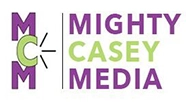If you’ve been paying attention, you know that yours truly got the chance to attend the annual Cochrane Colloquium in Edinburgh in September this year, thanks to a travel stipend from SPM, a #PatientsIncluded bursary from Cochrane UK, the hosts of the 2018 Colloquium, and a stipend from the NHS for the #BeyondTheRoom project to help cover the event for the global audience. And I’m sure there are a good number of you who are still thinking, “That’s great, but what the heck is Cochrane? And how did they get to be the ones running the ‘Hogwarts Sorting Hat’ of global medical evidence?” Forgive me, but I’m a comedy writer, and that breaks through from time to time, no matter how hard I try to stifle it. Anyway, Cochrane is named for a Scottish doctor, Archibald Leman “Archie” Cochrane, who wrote “Effectiveness and Efficiency: Random Reflections on Health Services” (the link will let you download the whole book in PDF) in 1972. Archie Cochrane advocated for randomized clinical trials (RCTs) for, well, everything – treatments, practice methods, research protocols, an “all of the things” approach, on a loop – which was not how medicine was being practiced under the prevailing “doctor knows best” practice model in place across the globe. “The art of medicine to preserve autonomy, the science of medicine to preserve authority” rules pointed out by many people seeking to make medical science more science than “because it’s how I do things” – those rules have been snarked at by both your correspondent, and Dr. Al Mulley at Dartmouth, among a host of others. Archie Cochrane influenced the thinking, and practice, of many other clinicians with his thought leadership on practice variation, practice standardization, and the use of RCTs to fine tune medical science. One of the people he influenced was Iain Chalmers, who, in 1993,…
I won the big platinum #PatientsIncluded ring (much better than brass) this year with an opportunity to attend the Cochrane Colloquium, the global health science and health services research meeting that happens somewhere on Planet Earth every year. This year it was hosted by Cochrane UK, with the venue in the heart of Edinburgh, one of the best little cities in the world. Since Cochrane UK was determined to sport the Patients Included badge, they started inviting people/patients from around the world to think about applying for a scholarship (in UK-ese, a bursary) when the starting gun fired in the spring of this year. They have a very effective Twitter presence, so I got pinged early. I volunteered to serve as an abstract reviewer, on the theory that every little bit (of contribution) helps, both for getting great content and demonstrating one’s enthusiasm for the project. When the application process opened, I was ready, and hit the “get a letter of recommendation from a Cochrane research group” daily double when Gordon Guyatt, the father of evidence based medicine in the 20th/21st centuries, and his entire MAGIC team wrote and signed my letter. THAT was a really good day around here! When word arrived that I had been awarded a scholarship, there was also news that I’d won a couple of bonus rounds on travel assistance – one was a travel stipend from the Society for Participatory Medicine (thanks, guys!), and the other was being selected to be part of the Beyond The Room team for the conference. Here’s what that was about, directly from the Cochrane Colloquium page inviting applications: “Also new this year is that we’re putting together a team to take the event #BeyondTheRoom. This digital conference service was started in 2016 by André Tomlin from the Mental Elf who saw an opportunity to increase the reach and impact of…
I was lucky enough to be asked to write the foreword to the 3rd edition of Shared Decision Making in Health Care: Achieving evidence-based patient choice, from Oxford University Press. Here’s the text of that forward. We are at what appears to be a Copernican moment in healthcare, where everything that learned minds thought was true – that the sun revolved around the earth; that miasmas rising from the ground, or humours contained within the human body, caused disease; that only magical beings called doctors could understand or participate in medical care – is being disproved. Medicine stands at a crossroads unlike any other transformation point in its history. As access to information – what I call the democratization of knowledge – has become as simple as the movement of a human finger, the relationship between doctors and the people they care for has undergone a seismic shift. But like many seismic shifts, it’s happening at a level that only those tuned to pick up the signals from it can sense. That I, a patient voice whose only medical knowledge has been acquired as an autodidact with strong research skills, have been asked to write the foreword to the third edition of Shared Decision Making in Health Care is a strong indication that the earth is moving beneath our feet. The knowledge exchange that is the bedrock of shared decision making is creating the mutuality that has been missing in medicine, making a full partnership between doctors and the people they care for finally possible. As is made clear in many parts of this book, building literacy on both sides of the equation is a must for shared decisions – information has to be shared with people in ways they can understand, which makes solid communication skills a must for both patients and…



